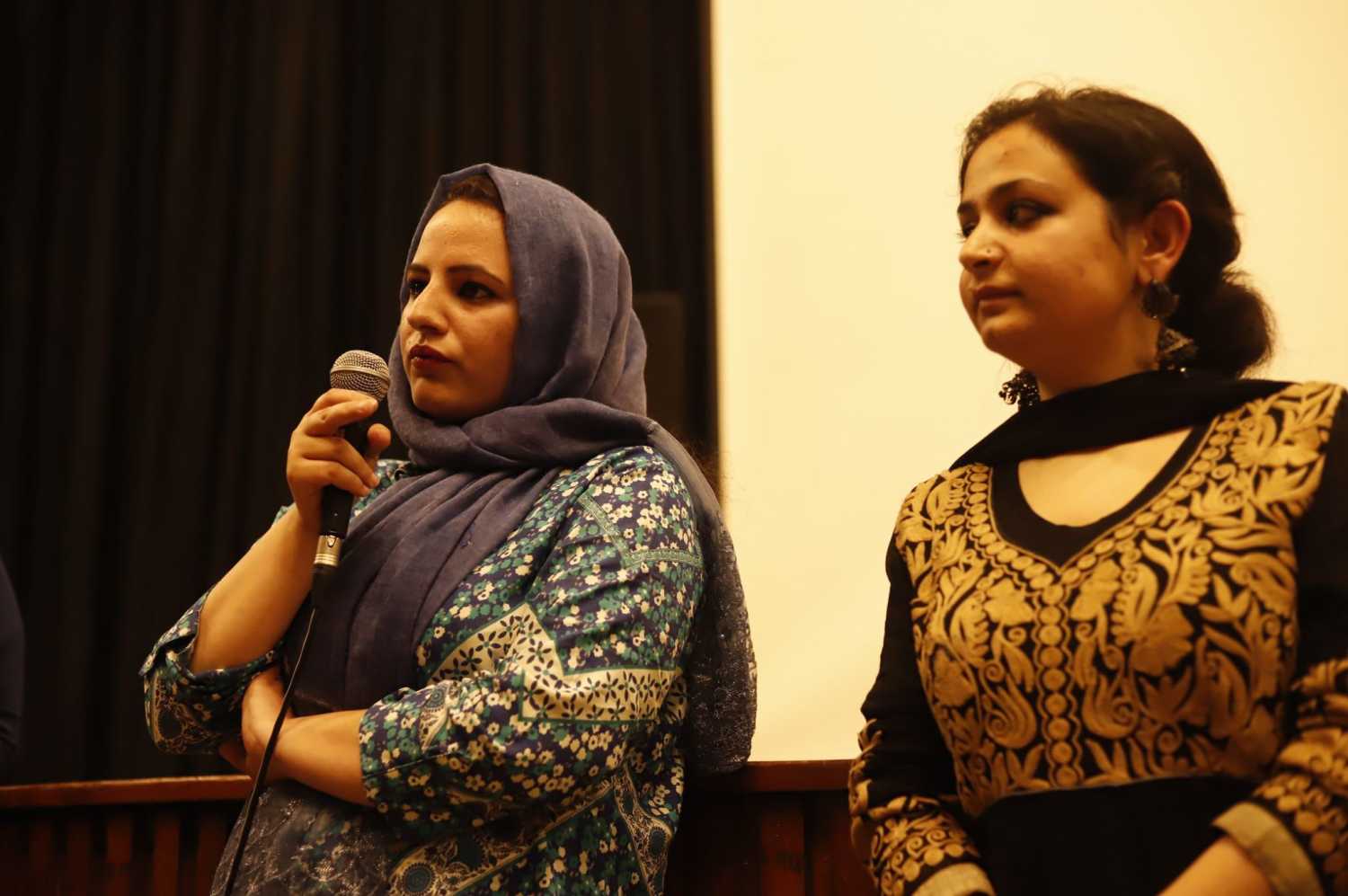Masrat Zahra and fellow photojournalist Sanna Irshad Mattoo's pictures, which were exhibited at the just-concluded IAWRT Film Festival, document the lives of the people of the erstwhile state after the withdrawal of its special status under Article 370 of the Constitution.
They are not pictures, but emotions, says Masrat Zahra on the images that capture the lives of Kashmiris
New Delhi - 09 Mar 2020 18:36 IST
Updated : 11 Mar 2020 17:10 IST


Sukhpreet Kahlon
Kashmiri photojournalists Sanna Irshad Mattoo and Masrat Zahra organized an exhibition of their photographs that bear testimony to the ways in which the lives of ordinary people have been affected by the abrogation of Article 370 of the Constitution in the erstwhile state of Jammu & Kashmir.
The photographs, which were exhibited as part of the just-concluded International Association of Women in Radio and Television (IAWRT) Film Festival in New Delhi, bear witness to the gruesome violence, arbitrary imposition of rules, dehumanization of citizens and suppression of largely peaceful protests that have taken place in the state, undercutting the narrative built by the government of India.
At the presentation of their photographs, taken around the time Article 370 was read down and the lives of the people irrevocably changed, Mattoo said she is often asked what Kashmir is like. “Kashmir is about snow-capped mountains and the Dal lake, but there is something beyond that. It’s not just about the landscape, but about the people,” she said.
Speaking about the aftermath of the abrogation of Article 370, she said, “All we could hear was the sound of choppers and drones hovering over us.” She recounted the real impact on the lives of citizens who had no access to basic facilities or any means of communication.
The photographs blazed a hole through the narrative created by the government that denied that any protests were taking place in Kashmir at the time. Image after image bore witness to how the citizens had protested peacefully, demanding their rights.
Just like in the national capital recently, the protesters were denied legitimacy and suppressed. Mattoo also spoke of the fact that in the absence of access to phones and social media, rumours became information as night raids and detentions were carried out. Chaos and confusion reigned supreme.
Zahra took the audience through the photographs she had captured, saying, “These are not pictures, these are stories of oppression, violence and mental trauma that Kashmiris are facing everyday. I tried to capture their stories through pictures.”
Zahra's photographs evocatively captured the stone-pelting, tear gas and raids which have become normal for Kashmiris but are, in fact, not normal at all.
She also highlighted the difficulties faced by journalists in capturing such images and doing their work, as they are repeatedly stopped by the authorities. “They intimidate us, harass us, delete our footage, check our cameras and we are unable to tell the stories of Kashmir... there are lots of stories there. These are not pictures, they are emotions,” she said, pointing to the photographs that speak the proverbial thousand words.
Related topics
IAWRT Asian Women's Film Festival
